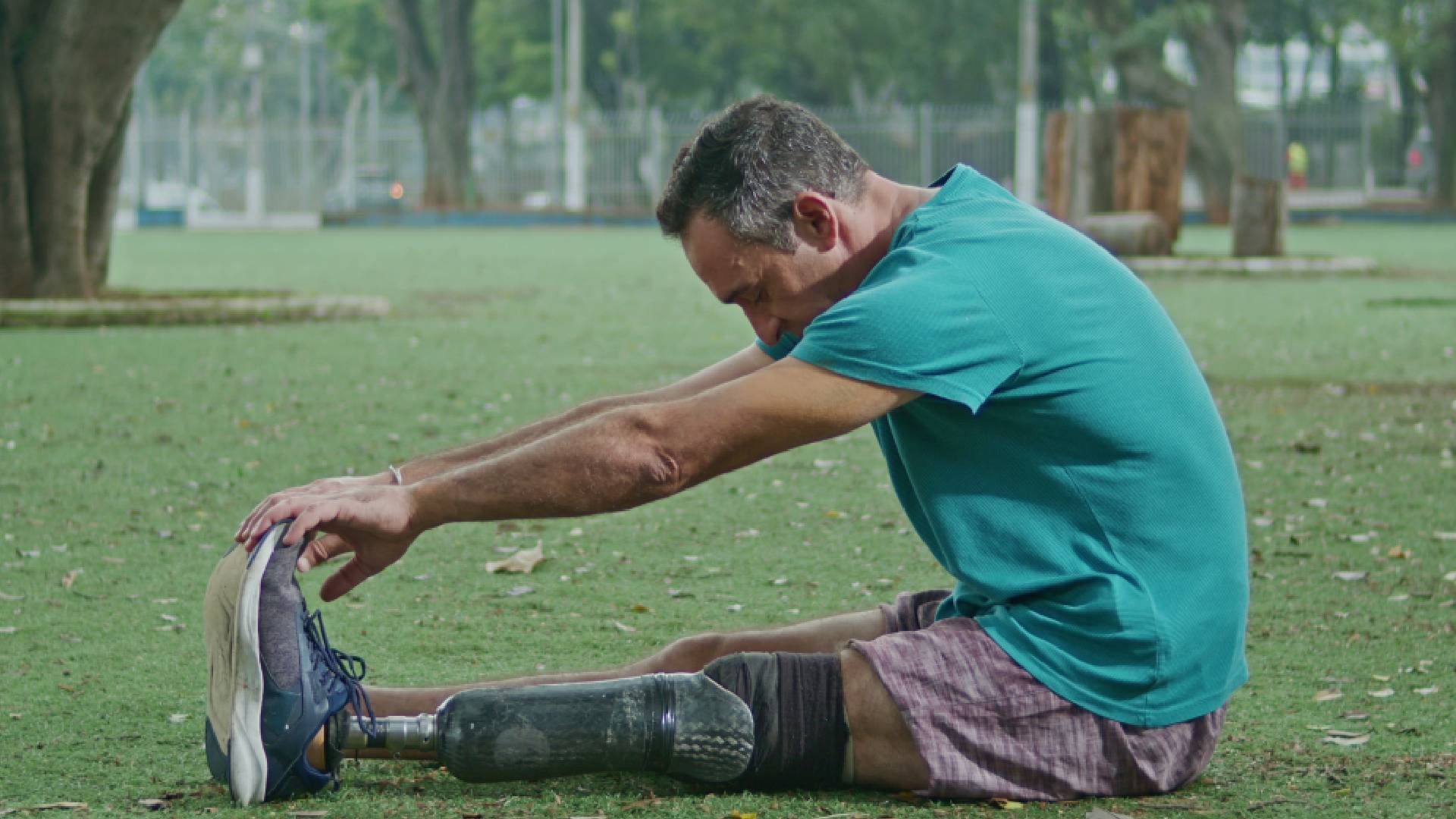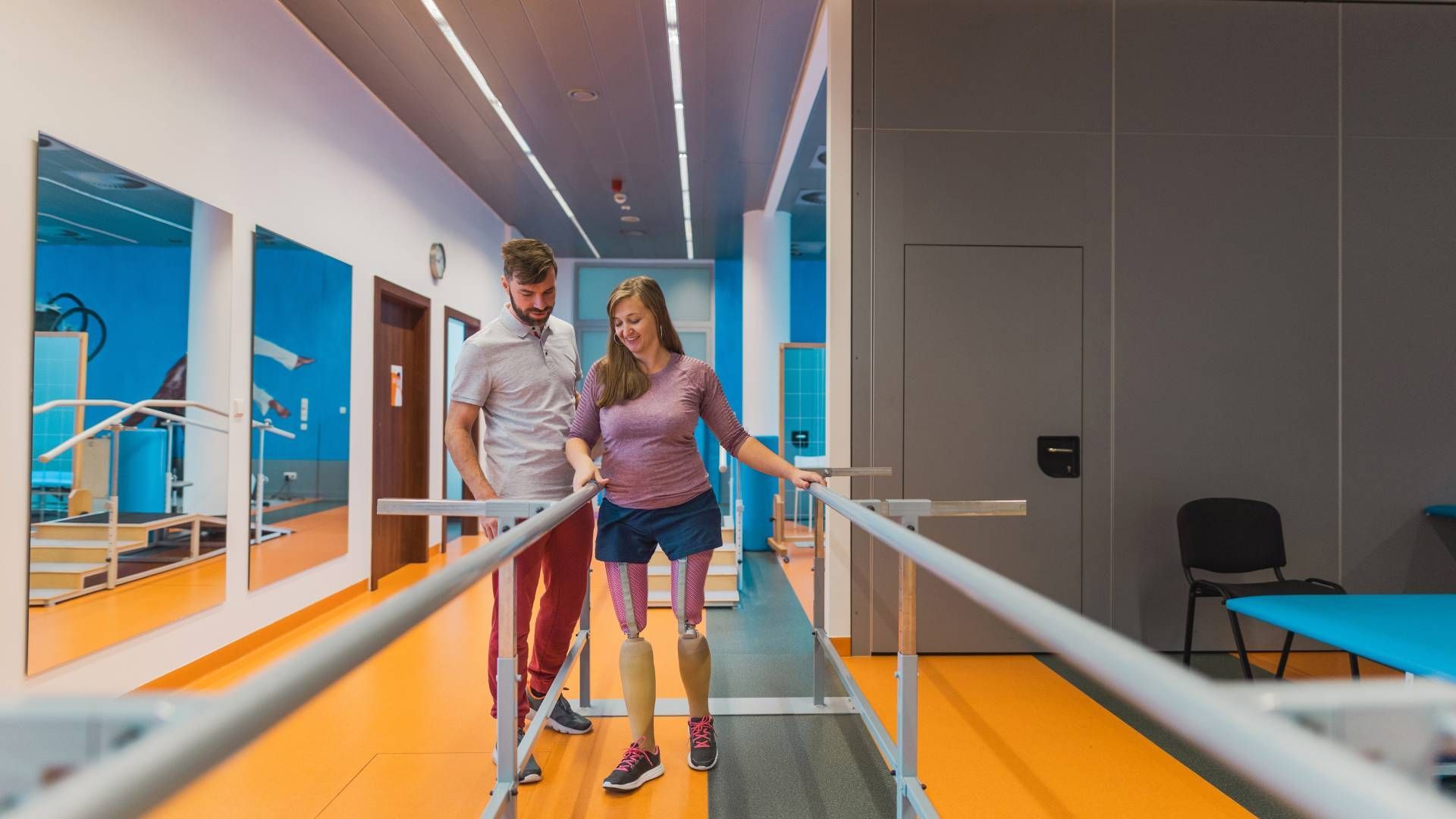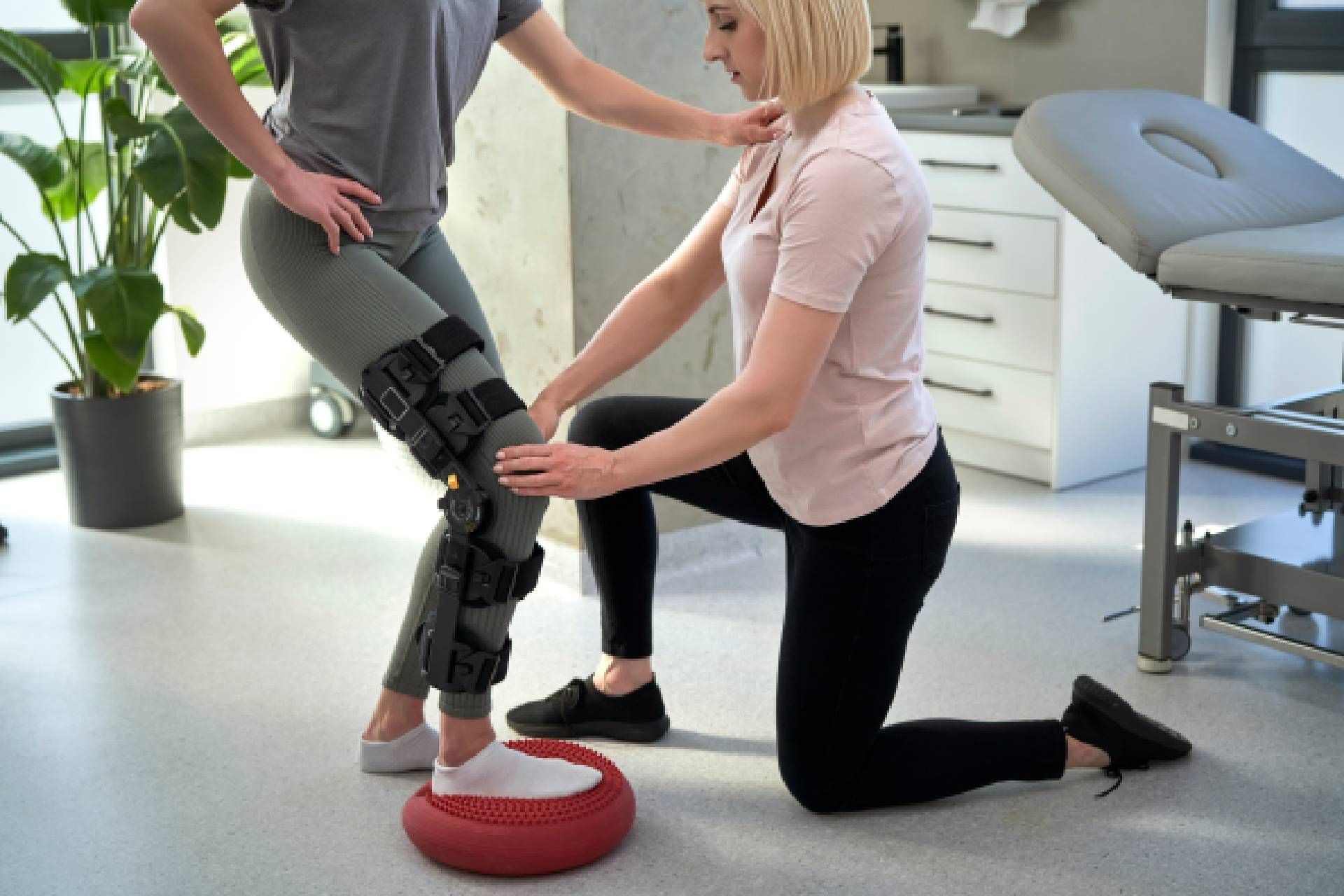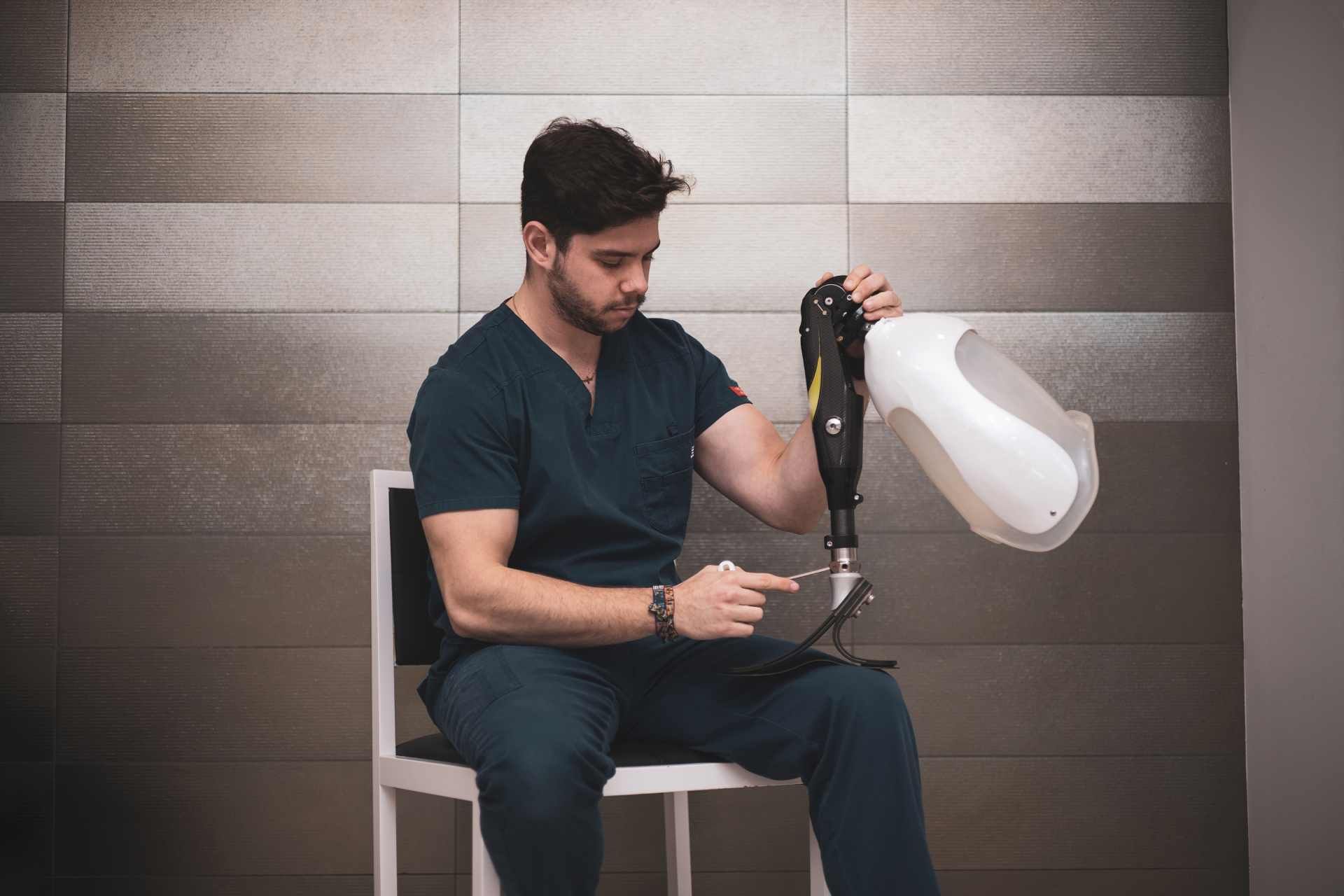Know Your Care Team
At Kenney Orthopedics, our prosthetists are known for providing exceptional care, professionalism, and service. As an amputee, getting to know and keep track of your many healthcare providers can be overwhelming. It is our goal to serve as a consistent member of your healthcare team and develop a relationship with you and your loved ones that lasts throughout your lifetime. We also strive to work closely with all members of your healthcare team including primary care doctors, home healthcare providers, social workers, specialty doctors, nurses, surgeons, physiatrists, physical therapists, occupational therapists, and others to help you reach your full potential.
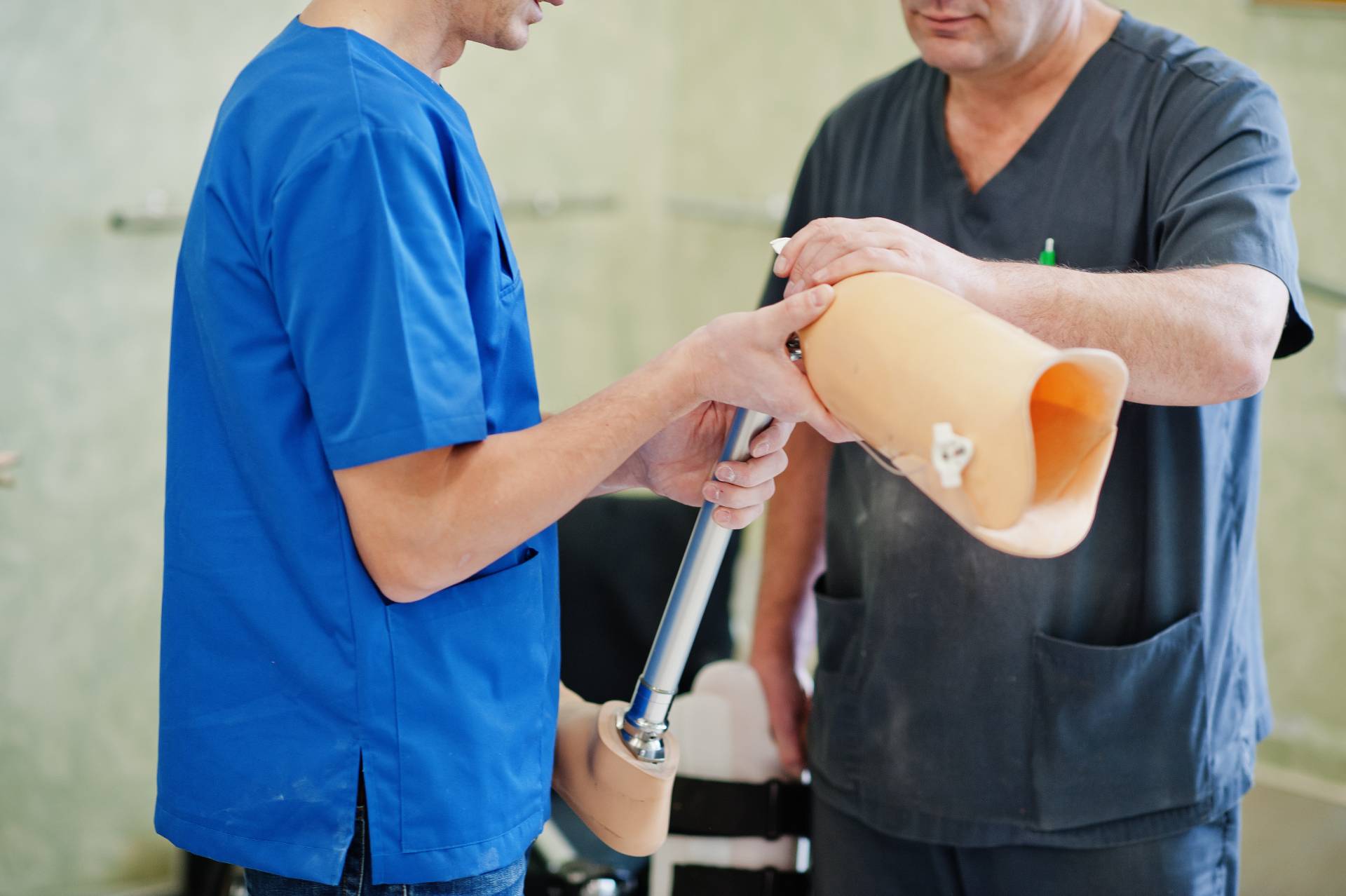
What Does a Prosthetist Do?
Prosthetists design and fabricate artificial limbs for both upper and lower extremities. They work with patients to ensure an optimal fit and provide ongoing adjustments, modifications and maintenance as needed. Prosthetists work in a variety of settings including hospitals, private medical practices, and other healthcare facilities.
What is the Difference Between a Prosthetist and an Orthotist?
While both prosthetists and orthotists work with medical supportive devices, they differ in the type of devices they design and fabricate. Prosthetists work with devices (prostheses) that replace an amputated limb (hand, arm, foot, leg). Orthotists specialize in braces that support a body part, such as ankle, knee, wrist, or spine.
What to Look for in Your Prosthetist
Recovery and care are very personal experiences. Finding members for your healthcare team that are both highly qualified and attentive to your goals are important for success. When looking for a prosthetist, consider qualities that are important to you, and be thorough in the selection process. Here are 3 things to consider when looking for a prosthetist:
- Credentials and Reviews: Do your research. Looking up reviews online is an easy way to get a sense of the prosthetist’s bedside manner. Also, make sure the practitioner is qualified. Ask how much experience the prosthetist has treating individuals with an amputation similar to yours. Find out if he or she is certified and if the facility where he or she works is accredited by one of the two accrediting organizations in the United States: the American Board for Certification in Orthotics, Prosthetics & Pedorthics (ABC) and the Board of Certification/Accreditation (BOC). Certification, licensure, and accreditation indicate that the prosthetist is upholding a credible and competent practice, current and up-to-date credentials, and a commitment to patient care.
- Good Communicator: Getting a new artificial limb and successfully incorporating it into daily life can be overwhelming. Therefore, you want a prosthetist that can clearly describe the process at the onset and keep you informed throughout your journey. He or she should also be willing to answer any questions you have about prosthetics, no matter how large or small. Your physician or surgeon may make recommendations, but ultimately, the decision is yours. Your relationship with your prosthetist will be ongoing, so it is important to choose someone you trust and with whom you feel comfortable.
- Nearby Locations: Prosthetic care requires frequent monitoring, follow-up, and adjustments, especially in the beginning. Selecting a prosthetist that works in offices convenient for you is ideal for ongoing care; however, it is not a requirement.
For the best care, be as proactive and vocal as you can in the selection of those that will guide and support you throughout your prosthetic journey.
Kenney Orthopedics offers exceptional prosthetic and orthotic care with talented practitioners on staff at their Lexington, KY; Louisville, KY; Indianapolis, IN; and Charlotte, NC locations. Contact Kenney Orthopedics to find a prosthetist near you and to discuss your prosthetic care options today.


